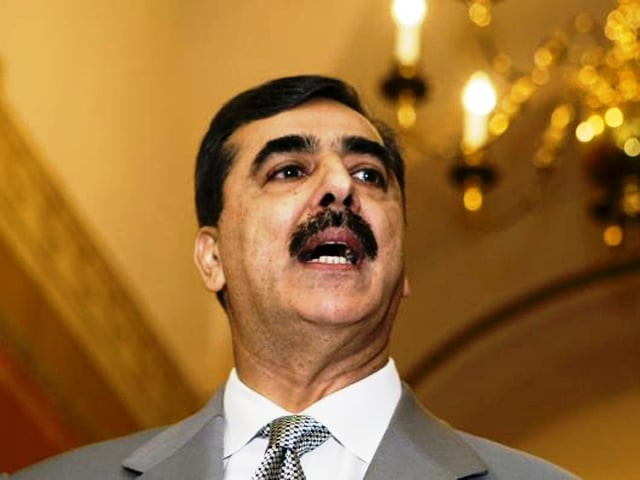Heckles greet controversial bills in NA
MQM calls RGST, flood surchage bill last nail in economy's coffin; PML-N calls it a recipe for complete disaster.

The government on Friday presented to the parliament two separate bills aimed at reforming an ‘outdated’ taxation system and levying one-time surcharge to rebuild flood-hit areas amid renewed threats by its allies and opponents to fail the move.
There were clear doubts about the passage of both the Reformed-General Sales Tax (R-GST) and flood surcharge bills as another government ally refused to support them immediately after their presentation to the National Assembly and the Senate.
Following Muttahida Qaumi Movement (MQM), it was Jamiat Ulema-e-Islam (JUI) of Maulana Fazlur Rehman that announced not to vote in favour of the legislation the government was under pressure to carry out to meet a demand of international donors.
“It is like killing people. We cannot support this bill,” JUI-F’s Maulana Ghafoor Haideri said in the Senate in the latest blow to the government’s efforts to seek the approval of the bills.
With this, the Awami National party (ANP) and lawmakers from the tribal areas were the only remaining supporters of these legislations but their votes would not be enough to give the administration a numerical majority in both the houses.
Members from opposition parties – N and Q factions of the Pakistan Muslim League (PML) – and MQM were instantly on their toes to chant slogans and thump desks as soon as Finance Minister Dr Abdul Hafeez Sheikh introduced the bill to the National Assembly.
“No, no” and “anti-people GST unacceptable” were the slogans they chanted to send the house in a chaos in the presence of Prime Minister Yousaf Raza Gilani who later manoeuvred to calm down the hyped tempers but even his words remained ineffective.
Gilani thought it was unfair that all the parties and provinces which had earlier agreed on the R-GST in a high-powered Council of Common Interests (CCI) were now turning against it.
“I summoned all the four provincial ministers and all of them unanimously approved,” he said.
Only the Sindh government, the premier added, had reservations on the bill but those were addressed in a long round of negotiations between the central and provincial authorities over a span of six months.
The premier warned that the government might not have enough resources to undertake a daunting task of rehabilitation of flood affected areas if the bill was not taken through the parliament immediately.
Earlier, central leader of the MQM and Federal Minister for Overseas Pakistanis Dr Muhammad Farooq Sattar said, “This bill will amount to striking the last nail in the coffin of Pakistan’s economy.”
Opposition leader in the National Assembly Chaudhry Nisar Ali Khan also said his party and the rest of opposition groups would never let the government take the bill through the parliament at any cost.
Later a statement by Nisar’s Pakistan Muslim League-Nawaz (PML-N) said: “Our party, in unison with other political groups, will not allow this tax to be enforced because the R-GST is a recipe for a complete economic disaster.”
“A boost in revenue generation is possible only after all the openings of corruption are plugged and the economy reprioritized with the welfare of the people placed on the top of national agenda,” PML-N Information Secretary Ahsan Iqbal said.
Published in The Express Tribune, November 13th, 2010.
Read the complete RGST bill here.


















COMMENTS
Comments are moderated and generally will be posted if they are on-topic and not abusive.
For more information, please see our Comments FAQ